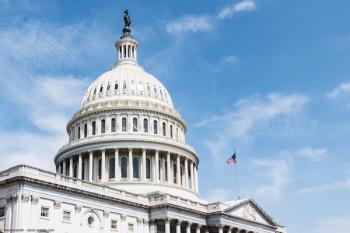
Court reverses 340B reimbursement cut
Reversing a decision by the Department of Health and Human Services to impose a nearly 30% reduction in 340B reimbursement rates, the U.S. District Court for the District of Columbia has disappointed providers who believed that action was finally being taken to help control the cost of expensive physician-administered drugs.
Reversing a decision by the Department of Health and Human Services (DHS) to impose a nearly 30% reduction in 340B reimbursement rates, the U.S. District Court for the District of Columbia has disappointed providers who believed that action was finally being taken to help control the cost of expensive physician-administered drugs.
The District Court’s decision came Dec. 27, 2018, when it issued a permanent injunction on the Centers for Medicare & Medicaid Services’ (CMS) payment reductions in the 2018 Hospital Outpatient Prospective Payment System final rule for drugs acquired through the 340B program. CMS had reduced payment rates for those drugs from Average Sales Price (ASP) plus 6% to ASP minus 22.5%, but the court ruled the agency exceeded its authority in making the adjustment.
CMS expected to appeal ruling
However, the court did not vacate the 2018 final rule and award payment to the members of the American Hospital Association and its co-plaintiffs equal to the payments they would have received in 2018 had the cut not been in effect. The court ordered further briefings on the matter to determine an appropriate remedy. CMS is expected to appeal the ruling to the U.S. Court of Appeals for the DC Circuit.
Also by Bob Gatty:
Richard Harris, MD, the new president of LUGPA, pointed out that the cost savings under CMS’s rule for 2018 was $1.6 billion. Such savings, if continued, would help reduce patient costs, he said, noting that while the drugs are covered by Medicare, patients still are subject to a 20% co-pay.
“LUGPA is all about patients,” said Dr. Harris. “We’re independent physicians who feel that we are in a key position to provide exemplary quality of care while doing it less expensively than in a hospital setting. Hospital services cost more than services in outpatient facilities, and with value-based medicine, there is a big shift to outpatient services. The 340B program, as noble as its intentions were at its inception, has taken on a new meaning because hospitals have benefited by utilizing these resources.”
Dr. Harris echoed previous comments by LUGPA Health Policy Chair Deepak A. Kapoor, MD, who contends those additional resources provided by 340B cost savings under the higher payment formula are being used by hospitals to further their mergers and acquisitions initiatives, including the purchasing of independent physicians’ operations.
“It’s money in the bank for them,” Dr. Harris said. “They are getting a boon to their bottom line and they can take that money and buy physicians’ practices, and the big hospital systems are acquiring more and more.”
That, he said, limits patient choice and results in increased charges to patients for the same services, often increasing their cost by as much as one-third.
Just a few weeks before the District Court ruled, LUGPA unveiled a new national survey showing that more than 60% of American adults are concerned about the impact that hospital mergers and acquisitions has on their access to affordable care. In fact, 25% reported that this trend is a threat to their health.
The survey of 1,191 adults, conducted by the YouGov polling firm for LUGPA, found that most patients trust smaller enterprises, such as independent physicians, more so than those employed by hospital systems.
Next:
The poll also revealed more than two-thirds of American adults want a solution to the trend of hospital purchases of independent practices, with the most desired solution being a requirement that insurers compensate all medical practices equally, a concept known as “site-neutral payments.”
Additional responses show that 36% of Americans think Congress should either incentivize independent physicians and level the playing field with hospitals, or regulate hospital purchases of independent practices to prevent them from gaining excessive market share.
LUGPA pointed out that in addition to its poll, multiple studies have shown that consolidation under hospitals increases prices and reduces options for purchasers of health services, which includes individual patients, self-insured businesses, insurers and government programs. Even worse, LUGPA said, less competition has been shown to affect care quality.
Read:
“Not only are independent physicians across the country negatively affected by growing consolidation under hospitals, the public is aware of the consequences at an individual level,” Dr. Harris said. “Given the rapidly increasing rate of hospital mergers and acquisitions, patients will continue to feel the pain in their wallets and in their quality of care. Congress has begun to take notice of the public health impact, and we encourage them to continue building on site-of-service reforms, so that patients pay the same amount for a service regardless of where it is performed or if that practice was acquired by a hospital.”
Other key findings in the LUGPA poll include:
- 65% of respondents trust an independent physician to give them the best recommendation over a hospital-employed physician.
- 69% think the government should take some kind of action to prevent the continued trend of hospital mergers and acquisitions.
- Americans are most likely to associate independent, doctor-owned medical practices with personalized, patient-focused care. They also associate independent medical practices with trustworthiness and high quality.
Newsletter
Stay current with the latest urology news and practice-changing insights — sign up now for the essential updates every urologist needs.






